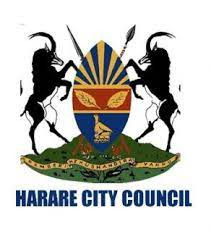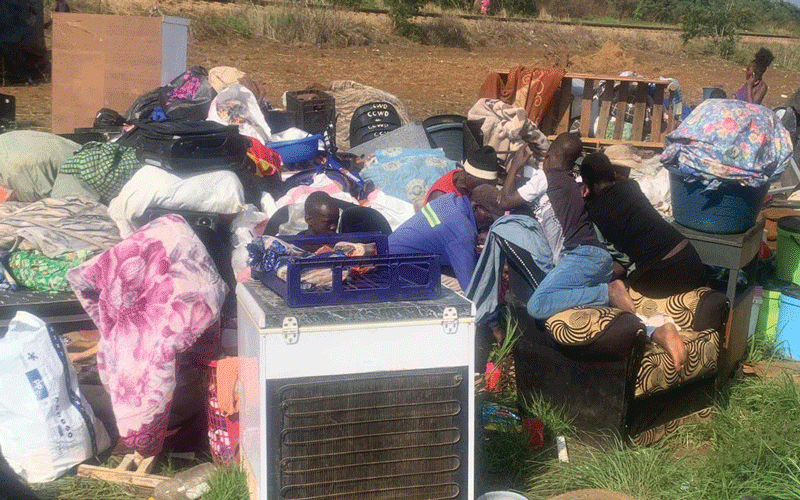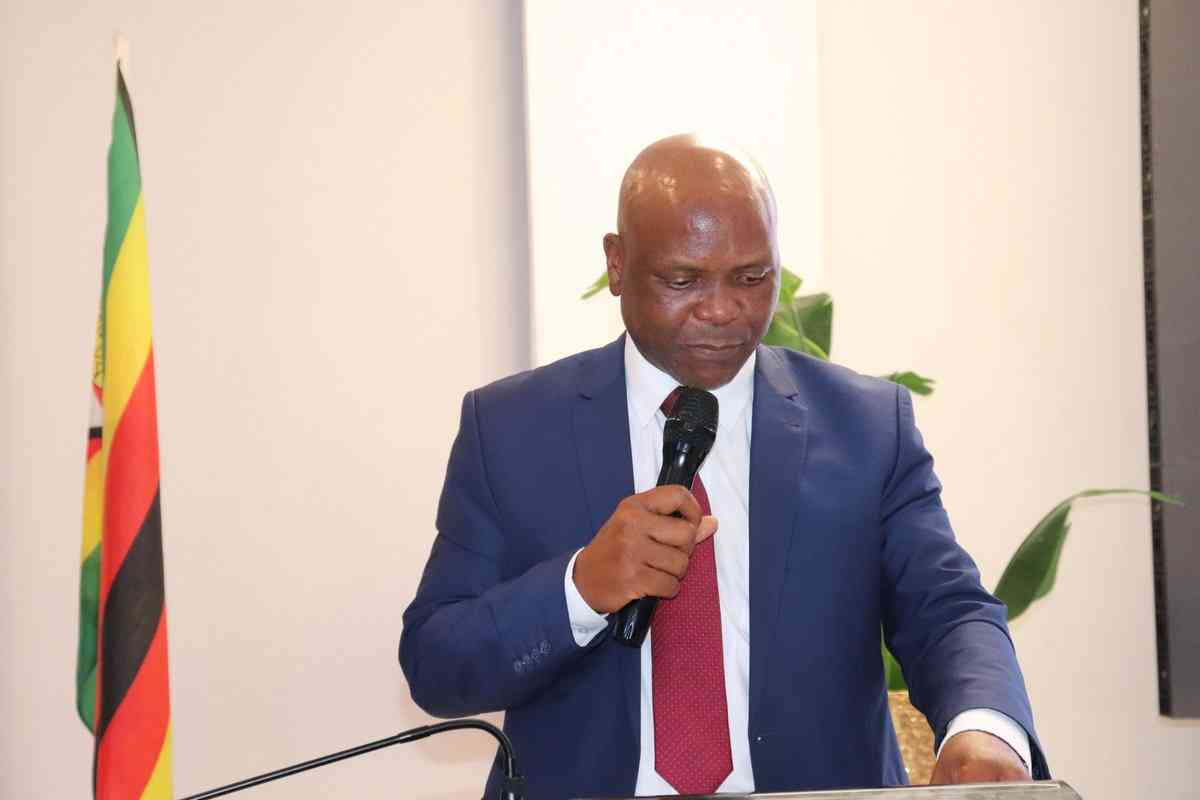
The Harare City Council is under growing legal pressure over the mushrooming of cluster housing projects, with a series of court cases exposing alleged corruption, procedural irregularities, and backdoor land deals in the capital’s upmarket suburbs.
The local authority is at loggerheads with residents who are rejecting the construction of cluster houses, fearing that the developments will turn the once elitist neighbourhoods into densely populated areas, eroding their elite status.
The projects, which Harare says are under the local authority’s adopted densification policy, are sprouting in posh suburbs like Borrowdale, Mount Pleasant, Chisipite, Greendale and Highlands, among others.
Truth Diggers, Alpha Media Holdings investigative journalism unit, in partnership with the Information for Development Trust, a non-profit organisation supporting investigative reporting, carried an extensive probe into the nature of over a dozen cluster housing projects in Harare.
Residents expressed concern about a multitude of classified adverts in local newspapers with notices of land acquisitions and construction permits, many of them for high-density housing projects that they claim are in contrast with their neighbourhoods’ low-rise, single-family set up.
Legal experts said most of the ongoing disputes stemmed from alleged violations of the Regional, Town and Country Planning Act (Chapter 29:12), particularly Section 19, which provides for public objections to proposed land developments.
The section stipulates that local authorities must give reasonable public notice and allow affected residents an opportunity to raise objections before approving land development projects.
Harare City Council and land developers are accused of bypassing these procedures amid allegations of rampant corruption.
- Harare cancels Pomona waste deal
- Veld fire management strategies for 2022
- Lobby group bemoans impact of graft on women
- Devolution gains remain a mirage
Keep Reading
Residents argued that while the development will bring more housing, it also means a significant population increase, yet there is no corresponding plan to improve utilities and infrastructure, such as roads, water, and electricity, which they fear will exacerbate existing challenges and further strain resources.
The city’s aggressive push for densification and commercial redevelopment has increasingly seen council coming under legal fire, as residents take both developers and the council to the courts for allegedly violating town planning laws and threatening the status of their neighbourhoods.
In the latest blow to the city’s urban planning department, High Court judge Justice Paul Musithu on April 4, declared unlawful a cluster housing project in Greystone Park.
Musithu ruled that the developer, Dashway Investments, had commenced construction without an environmental impact assessment (EIA) certificate or development permit.
The court prohibited any further development at Stand 663 Greystone Park Township 8 (7 Sudley Close), citing breaches of planning regulations, following objections by the Borrowdale Residents and Ratepayers Association (BRRA).
City of Harare, the Environmental Management Agency and Dashway Investments were cited as respondents.
In another case ongoing case, the BRRA filed an urgent chamber application at the High Court in June 2024 to stop the construction of cluster flats at Number 949 Sugar Loaf Township, Glen Lorne.
The application was filed against businessman Leonard Mukumba, who is said to be building three blocks of flats designed to house eight families each.
BRRA members argued that the project violated the area’s low-density residential zoning and was being done without adequate consultation or environmental impact assessments.
In a separate, but related legal challenge, Trauma Centre Hospital, one of Harare’s leading emergency medical institutions, approached the High Court to stop a controversial office park project in Borrowdale, alleging that it endangered public safety and patient well-being.
Filed under a certificate of urgency, the application — brought by a medical doctor Vivek Solanki, representing Vislink (Pvt) Ltd, trading as Trauma Centre — and local resident Penelope Beattie challenged a permit issued to Condev Property Developers by the City of Harare’s director of urban planning.
Solanki argued that the approved development plans differed from those previously submitted and threaten to deteriorate the residential character of the neighbourhood.
“The respondents have supplied no proof that the owner of the property, the fourth respondent- Andrew Herbst, has consented to this development as is peremptory in terms of the Planning Act section 26 ( 1).
“I submit that there is no proof at all of fourth respondent's consent and it is clear that it does not exist,” he said in the court papers.
“I am informed and verily believe that in the circumstances it was rational and grossly unreasonable of the second and third respondents to grant a permit in the circumstances, particularly when the application was fatally deficient and non-compliant with the peremptory provisions of the Planning Act.”
Ignored petitions
Dozens of petitions have been submitted to the local authority challenging illegal cluster housing developments, but residents say the council has given them a deaf ear, leading to suspicions of backdoor deals.
In one of the several petitions, residents of Inverary Road in Pomona submitted a letter to council objecting to the construction of seven duplex cluster units on Stand 104, citing lack of legal notification and procedural irregularities.
“None of the neighbours received any formal communication, hence our conclusion that the petition has been issued out irregularly as this step appears to have been overlooked, ”reads the petition, dated January 23, 2025 which was signed by affected homeowners.
However, in a response dated February 3, 2025, council’s acting director of urban planning, Samuel Nyabezi, upheld the permit approval.
Naybezi made no mention of the required neighbour notifications, nor addressed the residents’ main concerns.
This pattern, residents say, was a systematic disregard for due process, where objections are acknowledged only to be dismissed.
BRRA chairperson Robert Mutyasira concern over the absence of corresponding provision of services to cater for the increased populations in the neighbourhoods being targeted for construction of cluster houses.
“The issuance of permits to developers is questionable, as evidenced by recent discoveries, some of which have led residents to instruct litigation or lobby for enforcement action,” Mutyasira said.
“The recent such action on a property at the intersection of Harare Drive and Leamington Road in Greystone Park, where an industrial structure was illegally constructed to operating level without following due process, has unearthed a disturbing trend of the local authority's employees who shield illegalities.
“Development control officers and building inspectors have become a law unto themselves by overriding procedure and exceeding their mandates of duty.”
Council defends cluster houses
In a written response to Truth Diggers, Harare City Council defended the cluster housing boom, claiming it was part of a long-term densification strategy aimed at addressing a 500 000-unit housing shortfall.
The local authority acknowledged awarding permits to what it called a “huge list of private players”, but refused to grant Truth Diggers access to the registry of approved developers.
“Cluster houses are targeting everyone who can afford because they are provided by private players who are into business and investment,” said acting town clerk Phakhamile Mabhena Moyo.
“There is no specific number of houses targeted because cluster housing development is demand driven.
“In addition, every property owner enjoys their property ownership, if they decide to apply for cluster houses they can, and if they not willing apply to for cluster houses, we do not force.”
The local authority dismissed corruption allegations, insisting that private developers were complementing council efforts.
Moyo admitted receiving complaints from residents, which he described as a mix of “genuine” and “not genuine” concerns, but did not outline any action taken in response.
Council also says there is no fixed target for the number of housing units to be built under the densification programme, raising questions about the absence of measurable planning benchmarks or transparency mechanisms.
While city authorities defend the densification programme as a long-term solution to Harare’s urban housing crisis, aiming to decongest overcrowded high-density suburbs, residents argued that the policy has been hijacked by profit-driven developers.
Council officials had originally sold the densification blueprint as a social intervention to address housing shortages and provide affordable homes to those on the city’s ballooning waiting list.
Harare mayor Jacob Mafume also defended the densification policy, saying it was crucial to address the housing crisis that the city was facing.
“This policy for densification requires that we reduce the area sizes of land, which means we encourage the building of flats, encourage the building of cluster homes, and look at space in a less expansive manner,” Mafume said.
“Colonial style yards where a person could fill a basketball court, a swimming pool, a football pitch in their own yard would be difficult to sustain in an urban environment.”
But in practice, the projects have nothing to do with affordability or public housing, critics say.
Properties in these new cluster developments are being sold at premium prices, often from of US$150 000 to US$400 000 per unit, far beyond the reach of ordinary home seekers.
With no quota reserved for those on the municipal housing list and a willing-buyer, willing-seller model dominating the market, residents accused the council of using a pro-poor policy to mask elite land deals, with city officials allegedly facilitating access for well-connected foreign and local investors.
Resident resists projects
The proliferation of cluster housing projects has triggered a wave of civic mobilisation, with residents forming dozens of hyper-local associations — some representing just a single street or small group of households — to challenge what they describe as irregular and opaque developments.
In areas like Borrowdale, Greendale, Mt Pleasant and Highlands, these micro-associations have emerged as community watchdogs, filing petitions, demanding planning transparency, and in some cases, initiating legal action against Harare City Council.
One such group, the Montgomery Road and Surrounds Residents’ Association, was created specifically to oppose the surge in cluster housing projects along their street.
“We had no choice, but to organise at street level because the city is no longer protecting our interests,” said a resident.
The rise of these grassroots bodies reflects a mistrust in municipal processes and a shift toward neighbourhood-led resistance as residents attempt to reclaim oversight of their communities.
The residents also challenged the council’s reference to the Borrowdale Local Development Plan, which they claim was passed under questionable conditions during Covid-19 lockdowns.
They allege that the plan is being used to justify contested developments, yet they did not contribute to it.
The irregularities surrounding cluster housing projects have also come under scrutiny at official levels.
Appearing before the Harare Commission of Inquiry early this year, a former City Council housing director Admore Nhekairo expressed shock at the proliferation of cluster houses.
Nhekairo claimed that the municipality had not allocated any land for cluster housing development in the past seven years.
“There has been no official municipal land allocation for such projects during my tenure,” he told the commission.
Nhekairo’s testimony triggered concerns that the current wave of developments was being driven by private land deals and speculative approvals, with no alignment to council’s official housing policy.










